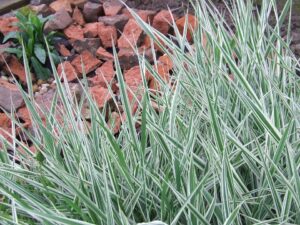Ornamental grasses have exploded in popularity of late, and there are a multitude of good reasons as to why. As we’ve discussed before, ornamentals aren’t just a fun bit of longer-than-normal grass. They have a huge range of uses, and can be a valuable addition to any garden, whether for aesthetics, functionality or benefits to your backyard ecosystem.
Ornamentals offer a perfect balance of good looks and hardy character, as they will usually require little to no maintenance through the growing season. But getting these advantages does rest on picking the correct ornamental for your situation. Knowing what conditions the plant will need to deal with, and what function you are hoping for it to serve, will shape your choice for the perfect grass.
So where should we start?

Will it be a feature plant?
Are you purely looking for a grass that will add to your backyard aesthetics? This is why most gardeners look at ornamentals. They inject fantastic texture, colour and motion into your yard, and can be used as either the main showpiece, or as more of an inconspicuous plant to tie the garden together with.
There are a great variety of colours, heights and leaf patterns available that will each give a different feel to your space. Do you want your plant to fit in with the rest of your garden, or want it to stand out and provide a focal point? It’s important to have a clear picture in your head prior to heading to the nursery.
Do You Need the Grass to Perform a Function?
Were you planning to get your grass to work for you? The CV of ornamental grass is surprisingly long, and it could provide you with much more than just good looks.
Covering exposed soil, as garden bed edging, adding texture, enhancing your privacy; there are many ways that an ornamental grass could provide not just a beautiful, but a functional addition to your garden.
If you’re looking to establish a barrier to prying eyes, a taller and thicker variety is going to be your safest bet. For those who want to line their driveway, a lower growing grass that doesn’t block the view of the rest of your garden may be a better choice.
What’s Your Climate?
As with all grass, ornamentals can be divided into two categories – cool season and warm season. This simply indicates when a particular grass will bloom. It will also suggest how resistant to cold and frosts or heat and drought a grass will be.
Warm season ornamentals will flower when the heat is on in early summer. It can be easy to think that your grasses have died over winter when you don’t see them emerging from dormancy in spring, but with warm season grasses this is often the case. This relatively late start to blooming will mean that they will stay beautiful well into autumn though.
Warm season grasses are built for the heat, and can cope with dry spells and humidity excellently. The flip side is they can be very susceptible to cold and frosts, and will be at risk of dying off if your area is prone to chilly winters.
Cool Season ornamentals will cope well with frosty winters, and may even keep their colour all year round. They traditionally flower as soon as the warmer weather starts in spring, but may find the heat of mid-summer a bit much. If you’re in an area that is prone to long, dry patches, be careful with your choice of grass.
Cool season grasses often need to be divided more frequently than warm season varieties, and may start to die in the centre if left to their own devices.

Clumped or Running?
The last decision that you’ll need to make when it comes to your new ornamental is whether to go for a clumping grass or running grass.
Clumped ornamental grasses are non-invasive, and won’t spread far from where they’re planted. The neat mound they form can be a great showpiece addition to your garden.
Running ornamentals are grasses that will spread themselves throughout a space if left to their own devices. They are an ideal choice if you’re looking to use your ornamental for ground coverage.
If you have a clear idea of what you’d like from the addition of an ornamental to your patch, there’ll more than likely be a variety that will be up to the task.
For expert advice on the perfect choice for your situation, contact your local McKays’ seed specialist.
 Free Metro Shipping, orders over $75
Free Metro Shipping, orders over $75

